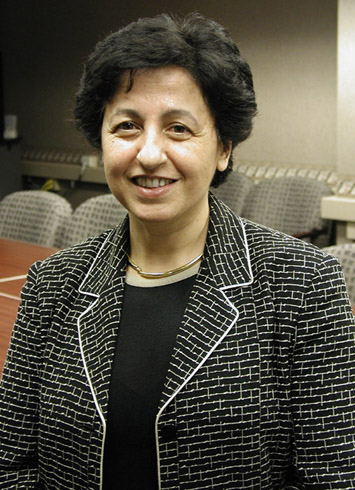
Elisa Bertino
Professor, CS Department
Research Director, CERIAS
Purdue University
Security and Privacy in the IoT
Abstract: The Internet of Things (IoT) paradigm refers to the network of physical objects or "things" embedded with electronics, software, sensors, and connectivity to enable objects to exchange data with servers, centralized systems, and/or other connected devices based on a variety of communication infrastructures. IoT makes it possible to sense and control objects creating opportunities for more direct integration between the physical world and computer-based systems. IoT will usher automation in a large number of application domains, ranging from manufacturing and energy management (e.g. SmartGrid), to healthcare management and urban life (e.g. SmartCity). However, because of its fine-grained, continuous and pervasive data acquisition and control capabilities, IoT raises concerns about the security and privacy of data. Deploying existing data security solutions to IoT is not straightforward because of device heterogeneity, highly dynamic and possibly unprotected environments, and large scale.
In this talk, after outlining key challenges in data security and privacy, we present initial approaches to techniques and services for securing IoT data, including efficient and scalable encryption protocols, software protection techniques for small devices, and fine-grained data packet loss analysis for sensor networks.
Bio: Elisa Bertino is professor of computer science at Purdue University, and serves as Director of Purdue Cyber Center and Research Director of the Center for Information and Research in Information Assurance and Security (CERIAS). She is also an adjunct professor of Computer Science & Info Tech at RMIT. Prior to joining Purdue in 2004, she was a professor and department head at the Department of Computer Science and Communication of the University of Milan. She has been a visiting researcher at the IBM Research Laboratory (now Almaden) in San Jose, at the Microelectronics and Computer Technology Corporation, at Rutgers University, at Telcordia Technologies. Her recent research focuses on data security and privacy, digital identity management, policy systems, and security for drones and embedded systems. She is a Fellow of ACM and of IEEE. She received the IEEE Computer Society 2002 Technical Achievement Award, the IEEE Computer Society 2005 Kanai Award and the 2014 ACM SIGSAC outstanding contributions award. She is currently serving as EiC of IEEE Transactions on Dependable and Secure Computing.

